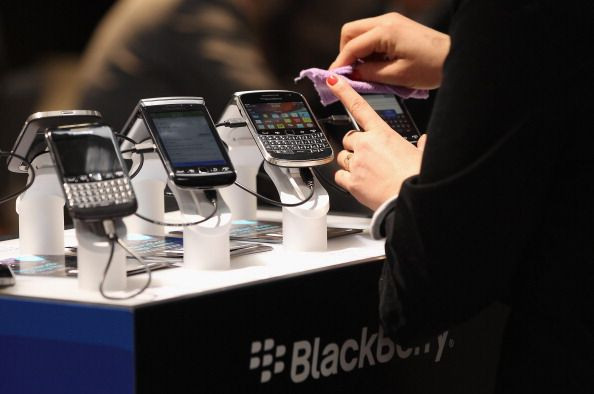Here's What Apple CEO Tim Cook Has To Say About Blackberry Quitting The Phone Hardware Business

Early Wednesday, Blackberry Limited announced it would be outsourcing hardware development to its partners and focus on software and services. Later in the day, Apple CEO Tim Cook shared his thoughts on the Blackberry announcement while announcing a deal with consulting firm Deloitte.
"I think their sales have been fairly low for a while," Cook told the Financial Times. "We are very focused on the opportunity and we see it as massive."
Blackberry, formerly known as Research In Motion, was once a major player in the market after releasing its first device in 2002. In 2009, the Canadian company claimed 20 percent of the global smartphone market. Now, it holds 0.1 percent of global market share while competitor Apple holds 13.8 percent of the market.
With Apple’s new Deloitte deal, the company will be further solidifying its foothold in the big business smartphone arena—an area that previously generated much of Blackberry’s profit. As per the deal, Deloitte will get its clients to adopt iPhones and iPads and the two companies will collaborate on a new product called “Enterprise Next.” Apple has similar deals with IBM and SAP.
After 14 years in hardware development, and a handful of failed products, Blackberry is pivoting its strategy to focus on software and services—the sector brought in $156 million in revenue in the second quarter and 81 percent of the revenue is recurring.
"The company plans to end all internal hardware development and will outsource that function to partners,” BlackBerry chairman and CEO John Chen said in a statement. “This allows us to reduce capital requirements and enhance return on invested capital."
"We are reaching an inflection point with our strategy," said Chen elsewhere in the statement. “In Q2, we more than doubled our software revenue year over year and delivered the highest gross margin in the company’s history. We also completed initial shipments of BlackBerry Radar, an end-to end asset tracking system, and signed a strategic licensing agreement to drive global growth in our BBM consumer business.”
Business Insider reports that Chen wrote a blog post last year about the encryption debate, where he called out the tech giant—without naming names—over its privacy and security policies a post.
“For years, government officials have pleaded to the technology industry for help yet have been met with disdain,” wrote Chen. “In fact, one of the world’s most powerful tech companies recently refused a lawful access request in an investigation of a known drug dealer because doing so would “substantially tarnish the brand” of the company. We are indeed in a dark place when companies put their reputations above the greater good. At BlackBerry, we understand, arguably more than any other large tech company, the importance of our privacy commitment to product success and brand value: privacy and security form the crux of everything we do. However, our privacy commitment does not extend to criminals .”
© Copyright IBTimes 2025. All rights reserved.




















